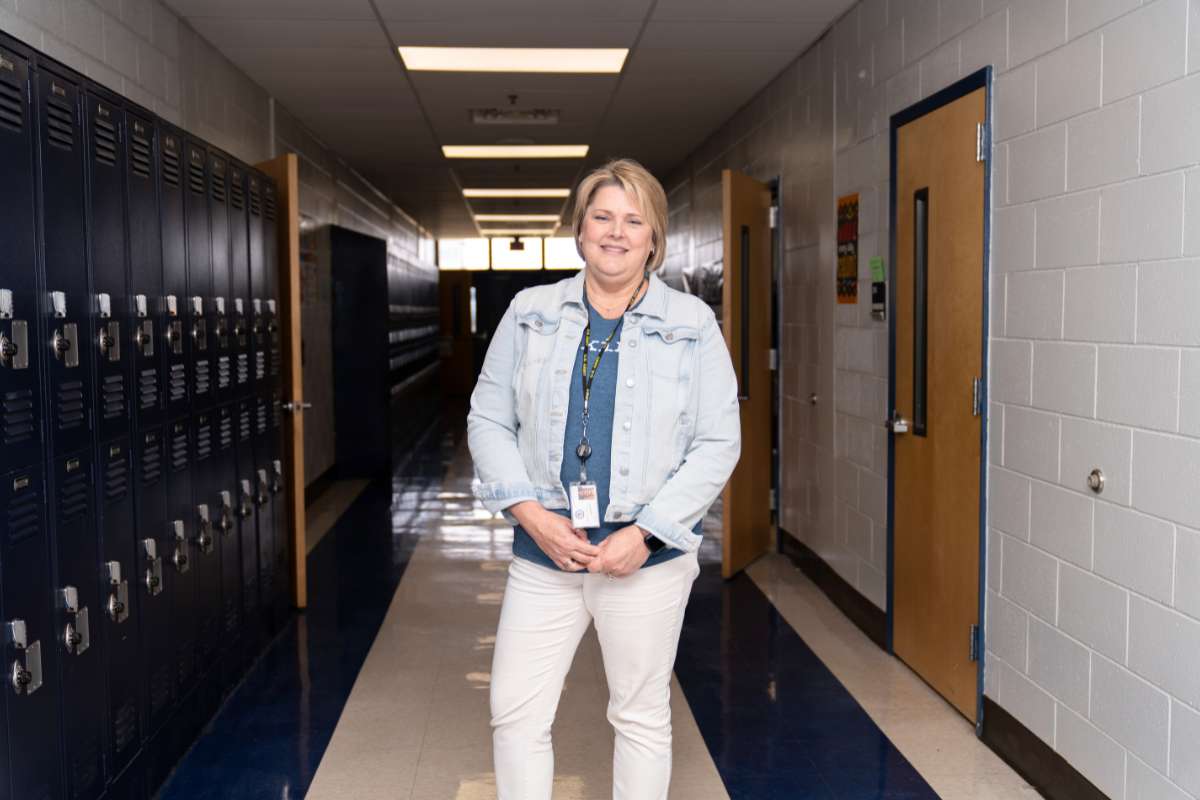AS YOU wait in the car rider lane for your student to emerge from one of Lincoln County’s schools, it’s hard to see. The double doors burst open, and students pour out, run-walking to their rides, whether it be the bus or a waiting vehicle. Some laugh with friends, while others focus intently on buckling up for the ride home.
What’s not visible are the realities facing many students and their families: food insecurity, homelessness, and a lack of proper clothing, school supplies, and hygiene items. Their parents or guardians may struggle to pay rent or utilities, and some children may not know where they’ll sleep tonight. Yet, Lincoln County Family Resource Center (FRC) Director Julie Miller stitches a patchwork of resources that cover them with an invisible community quilt.
The center is a part of Lincoln County schools and exists to support students and their families. It works with school staff, community partners, and other resources to ensure Lincoln County students are safe, secure, healthy, and well-educated.
Now in her sixth year as director, Miller brings years of experience to the position. Her work with children at Junior’s House as a forensic interviewer, counselor, and court-appointed special advocate weave the perfect foundation or backing for this community quilt.

“My heart has always been to help children in some way,” shared Miller, who quickly explained how she accomplishes it. “I lean very heavily on community partners, the faith community, local businesses, and individuals. They truly step up whenever there is a need. Our community is amazing.”
Additionally, Second Harvest Food Bank assists in stocking a school food pantry. Hands of Mercy provides snacks and hygiene products for each county school and hosts the annual back-to-school event, One Day of Hope.
These resources are the patches that make up the center’s covering. Other patches come from the schools’ support staff. Trace Golden, the school social worker, works closely with Miller, as do school counselors, in-school therapists, and other mental health providers. Educators and school staff, who see the needs firsthand, communicate the needs to Miller.
“Every service provided and every referral placed is all confidential. No information is ever shared regarding these families and students,” said Miller

While measuring success as it relates to students’ education may be difficult, the impact is tangible. According to Miller, families without homes have found employment and housing and moved forward with minimal assistance. Some students benefit from mental health support.
Miller explained, “I have even been able to obtain vehicles for those unable to find employment because of not having a way to get to and from work.”
Combined with the community support from individuals and organizations like Hands of Mercy, Sleep in Heavenly Peace, Clothe Our Kids, and HOPEtown Petersburg, it all comes together like a warm patchwork quilt stitched by caring hands.
Miller concluded, “Churches, local businesses, civic clubs, other nonprofits, and many individuals regularly help to provide for needs. I am the director and the face of the FRC, but it is truly a community of resources, people, and support that makes the magic happen.” GN




























































































































